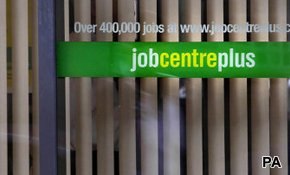61% support compulsory unpaid work placements; 52% say it's a good thing for a company to do
The majority of the British public supports compulsory unpaid work placements for jobseekers, our poll shows, while around a third opposes such placements. Voluntary placements also received similar levels of support and opposition.
On a related issue, just over half of Britons say that giving unpaid placements to the unemployed is a positive thing for a company to do, in comparison to one third who feel that compulsory unpaid placements are a negative, exploitative thing for a company to offer.
- 61% support Job Centres making people on longer term unemployment benefit take up compulsory unpaid work placements (with the threat of losing their allowance if not)
- 32% oppose this
- 59% are in support of voluntary unpaid work placement schemes (which may see claimants lose benefits if they drop out halfway through)
- While 34% oppose them
- 52% say giving unpaid work placements to the unemployed is a positive thing for a company to do, and helps young unemployed people 'get experience of real work'
- 34% think giving unpaid work placements to the unemployed is a negative thing for a company to do and exploits the unemployed to do work that they should be paying 'a proper wage' for
Jobseeker placements
The results come amid debate surrounding the current scheme run by Job Centres, which offers unemployed people on 'Jobseeker's Allowance' stints of short-term unpaid work placements to enable them to get 'experience' while looking for work. People taking up the roles continue to receive Jobseeker's Allowance while doing the job, but may lose their benefits if they drop out half way through or refuse to take part. There is no guarantee of a paid job at the end of a placement.
The scheme is said to have helped thousands of youngsters 'on the dole' to secure jobs and come off benefits, however a recent case has led critics to liken the scheme to ‘slave labour’ after an unemployed graduate objected to months of 'stacking shelves' in budget store Poundland for no pay. Since this complaint, a number of jobseekers have come forward with similar stories about companies that exploited them by giving them the most unfavourable duties and making them work much longer hours than any paid employee.
Better than The X Factor?
The Work and Pensions Secretary Iain Duncan Smith, has hit back at criticisms of the scheme, arguing that stacking supermarket shelves is more productive than dreaming of stardom via TV’s The X Factor, while Employment Minister Chris Grayling has said that 'the allegations about this scheme are absurd and ‒ those who are particularly targeting the supermarkets, which have been very helpful to us in supporting this scheme, are frankly ‘job snobs’ about the nature of the work those supermarkets are doing.'
Suzanne Moore, of the Guardian, has said she finds the opinion of these politicians condescending, and feels that work can only be ‘incentivised’ by wages.
'The idea that this is a 'stepping stone' [into work] is as much of a fantasy as The X Factor,' Moore wrote. 'The stepping stone is education. That's what makes you free, not work. Now the young are to pay for that and work for nothing? And all while most of our political and media class spout lousy morality tales about lousy jobs while undermining even the basic minimum wage.'
See the survey details and full results here (pages 7-8)








